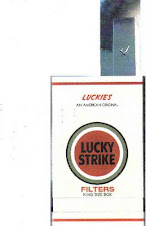Tuesday, November 26, 2013
Gobble Gobble Roil and Wobble.
What that entailed in those days was copying them on a color copier, which I had to purchase, because, at that time, Kinko's wouldn't allow their customers, as a result of government diktat, to use their color copiers, and to make a card required more instructions than was really feasible to go over with an impatient and harassed clerk. When I asked what the reason for this was, they told me that the government was afraid of someone using the copiers to make currency, to which, astounded, I queried, "So since when did you become agents of the Treasury Department?"
So I bought a color copier. It's embarrassing to admit it, but I paid $3300.00 for this marvel of technology which I still have in my cellar, as well as a copy of the bill, which I have to look at to ensure myself that it really did cost that much. Of course, today, just one of the color cartridge costs more than the price of a printer, so another piece of operational machinery sits idled, replaced by a much cheaper, in every meaning of that word, color printer.
The printer is much more versatile, coming, as you know with a color copier and fax (what's a fax, right?) capability packaged together in one unit. Well, and this is the point of my post, what is now up to three other units, all of them in various states of disrepair. The Xerox printer I won't really count, (but its is still mechanically capable of dot matrix printing), an HP 2000C, which is also in perfect working order, but was no longer supported once I upgraded to XP (yes that's right, I'm still on XP, but support for that, I've heard, is going away in March/April 2014), another brand, which I don't remember, but it lost one of its functions, so I purchased another HP, as I find their quality pretty good, and they can take the heavy stock paper I use to print the cards on, this one an Office Jet 5780 all-in-one, that I still use for scanning, but the print function is iffy, especially in color. Unless I use it every week or so (and I can go months without needing to print anything) the color cartridges simply dry up and won't print without much travail on my part, so I was grateful when I received the gift of a used, but far superior, machine in the guise of another HP, this one a Photosmart 2610, which, after a couple of years of sporadic holiday printing, has now decided that it won't feed paper anymore, but crumples it up into useless paper jam instead.
The scanning function still works, so now I have 3 scanners (I also had an HP scanner that died, but luckily, by the time it died, every printer pretty much included one for less than the price of the original scanner). Now, the printing function of the 2610 probably still works, but, despite having just paid half the price of the printer for their multi-color print cartridge, (which means you can have a cartridge that has run out of yellow, but has plenty of cyan and red left, but those ink supplies have to be thrown out unused as there's no way to refill just the yellow), I may never know if the printer still actually works, as the cost to have it repaired can easily very quickly cost more than the cost of a new and improved printer.
Now although I am in fact questioning the wisdom of continuing to make and send my own cards, the point of this post isn't that at all. It's instead to highlight the fact that in one of the most recent industries to appear on the industrial landscape, the one that was going to usher in the paperless office, has proven to be an ecological disaster of the highest proportion. Not because of my fecklessness, but because of the business model of said industry. Acceding to the theory that we are a market-oriented society, driven up against the wall by market forces, the decision that HP made in their manufacturing and pricing have directly to do with their, and the industry's as a whole, business models. And number one in that business model, and I speak not from rancor here, but from direct experience, as I was a Computer Engineer as well as peripherals technician, and a Network Support Engineer for almost my entire working career (but I can't, because of the design of said printer, even fix a paper jamming problem now), is the elimination of humans in the peripheral repair equation. In fact, as an AT&T tech, we never even worked on the printers, unless they were band printers; if the customer had a maintenance contract, we swept in swapped out and shipped off their old printer replacing it with a 'new' (ie reworked) one.
This fact, coupled with the necessity of getting the unit cost of the initial purchase price down below the cheap competitors' models, required stealth technology of a different kind. This stealth was of the sort I mentioned above, whereas cartridges cost more than the printer, and then moving further into the evolution of stealth charges, moving all the print cartridges into one, so that the purchase price was not only obscene, but wasted toxic chemicals, unavoidably, which is to say, by design, because you will ALWAYS run out of one color before the other two are gone.
And this is only printers. You know yourself that every electronic device on sale in the Marketplace right now uses the same wasteful toxic-laden business plan to increase sales and lock customers into their products so as to gouge them for future purchases in order to keep their current one in working order. The result of this orgy of production is that the resultant electronic garbage is choking every ecological system on the planet, and, because no company's bottom line need concern itself with e-waste, except as a lame PR ploy, it will never be addressed, except, again, by tacking it on at some point in the future, to the consumers' price, via taxation or other creative avenue.
Now you can argue that that's fine, but the problem is that, because it's not included in the price, but instead uses stealth procedures by which society eventually pays the cost, it means that the products that are the dirtiest and cause the most toxicity to the environment, as long as they are manufactured in low-wage, low-regulation countries, which thanks to anything-but-free trade, it is, in fact, has to be, following the harsh discipline of the market that forces good industries out and amoral, asset-stripping malevolent industries to the top of the ladder of success, are exactly those industries that are the most capable of pushing all of their expenses and clean-up operations onto the State, off of their books, and hidden from view.
But like all of Capitalism's imbroglios, this is never ever a subject of conversation among those who should be the most concerned: government officials. Because they are exactly the same people who those other 'people', called corporations, have paid off to cater to their needs in complete indifference to the needs of anyone else, let alone to the impacts on something as 'abstract' as the planet itself. Yet, somehow, to suggest this, something no one knows more than the most fervent Capitalists, and their paid-off scum, like Groveling Norquisling, is to be branded as some kind of commie pinko ... by those who are fervently literally anti-socialists. It is this dire strait, where we can talk about the destruction of the world with more freedom and less fear than we can talk about the mechanisms by which Capitalism is bringing about that destruction, that we now find ourselves inescapably entrapped. The end result will leave us with less than something to give Thanksgiving for. But on we go.
Subscribe to:
Post Comments (Atom)





















































No comments:
Post a Comment